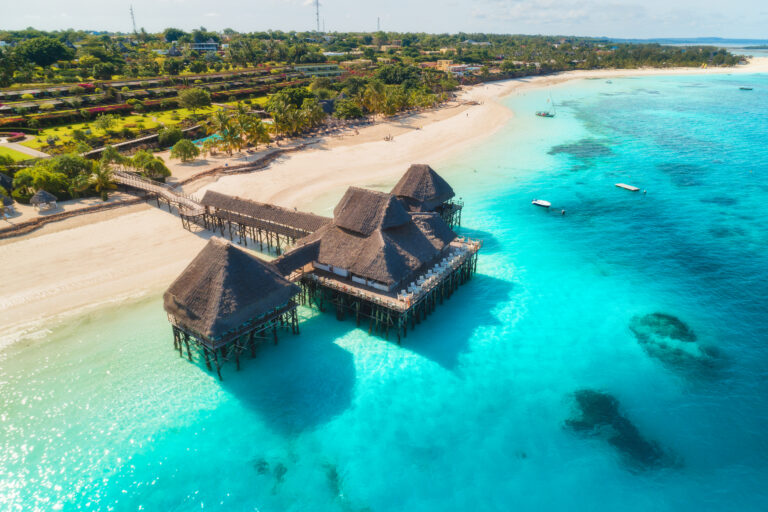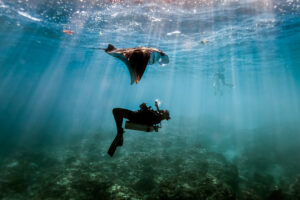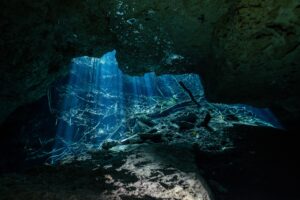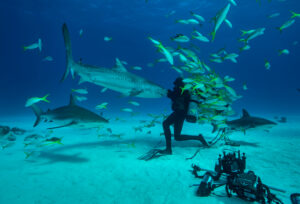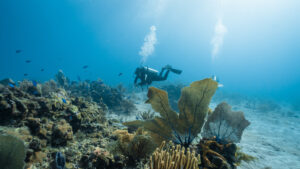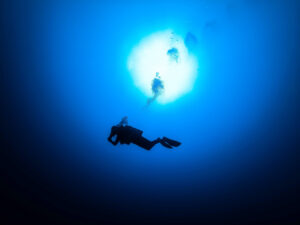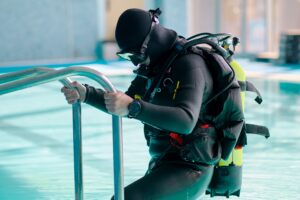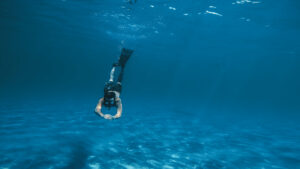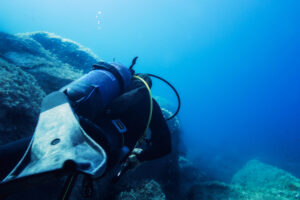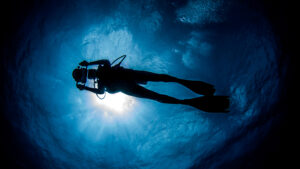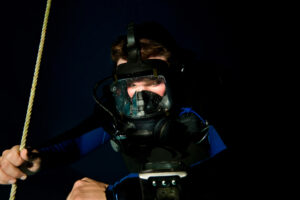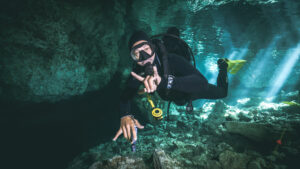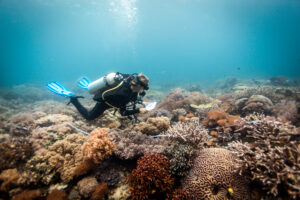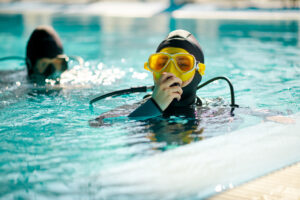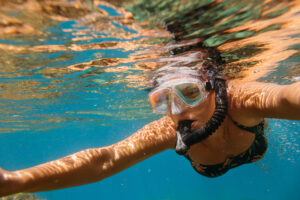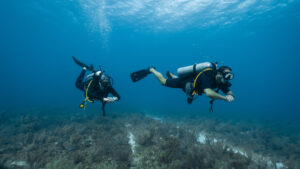What is a Dedicated Dive Resort?
A dedicated dive resort is a specialized vacation destination catering specifically to scuba diving enthusiasts, offering a comprehensive and immersive diving experience. These resorts are strategically located in some of the world’s most sought-after diving areas, providing direct access to vibrant coral reefs, diverse marine life, and underwater attractions. What sets these resorts apart from standard holiday accommodations is their focus on offering tailored services for divers, which may include lodging, dive courses, equipment rental, and guided diving expeditions. Sustainability is a key principle for many dedicated dive resorts, as they place great importance on environmental conservation and responsible tourism practices, aiming to protect the delicate ecosystems that draw guests to these breathtaking underwater environments.
Features of Dedicated Dive Resorts
Dedicated dive resorts have carved a niche within the broader tourism sector by offering experiences tailored to the needs and passions of scuba divers. As the demand for specialized vacations increases, these resorts continue to distinguish themselves by providing distinctive features that enhance the diving experience.
Prime Locations
Location is one of the most critical factors that set dedicated dive resorts apart. These resorts are intentionally situated in proximity to some of the world’s most celebrated diving destinations. For example, Australia’s Great Barrier Reef, a UNESCO World Heritage site, is renowned for its complex coral systems and abundant marine life, while the Red Sea in Egypt attracts divers with its impressive shipwrecks and coral gardens. The Caribbean islands, with their clear, warm waters, also offer unparalleled visibility and rich underwater biodiversity. By choosing locations like these, dive resorts ensure that guests have easy access to spectacular underwater landscapes, allowing them to maximize their time exploring the vibrant marine world.
In addition to the beauty of these locations, many resorts are designed with the divers’ convenience in mind. Positioned close to the shoreline, dive resorts minimize the time and effort required to reach key dive sites. This ease of access, combined with the natural beauty of their surroundings, positions dedicated dive resorts as the ultimate destination for marine enthusiasts seeking proximity to some of the planet’s most prized diving environments.
Accommodations
Accommodation at dedicated dive resorts caters to a wide range of preferences and budgets. While some resorts offer simple, budget-friendly dormitory-style lodgings, others provide more luxurious options such as private villas or oceanfront suites, complete with stunning views of the surrounding seascapes. The goal is to ensure that every type of guest, whether a casual diver or someone seeking an indulgent escape, feels comfortable and well-cared-for during their stay.
The emphasis on comfort goes beyond just the rooms. Many dive resorts take care to provide an atmosphere that complements the overall diving experience. Oceanfront accommodations, for example, allow guests to fall asleep to the soothing sounds of the sea and wake up to panoramic views of the water. This serene environment fosters relaxation, helping divers recharge between dives and enjoy their time out of the water just as much as when they’re submerged in the ocean depths.
Dive Services
At the heart of any dedicated dive resort are the comprehensive dive services offered to guests. Dive resorts are equipped to provide everything a diver might need, from high-quality dive gear rental to air tank refills and maintenance services. These facilities are designed to eliminate the hassle of transporting or purchasing equipment, allowing guests to focus solely on their diving experience.
Additionally, dive resorts offer organized dive expeditions tailored to the skill levels and interests of the guests. These excursions are often led by knowledgeable local guides who possess expert understanding of the dive sites, marine life, and ocean conditions. Such expertise is invaluable for both novice and experienced divers, as it ensures safety and enhances the overall experience by highlighting unique underwater features that might otherwise go unnoticed.
For many guests, the availability of dedicated dive boats is another significant draw. These boats depart regularly, transporting divers to various dive sites with efficiency and ease. The combination of expertly guided dives, convenient transportation, and high-quality gear all contribute to the seamless diving experience that guests have come to expect from dedicated dive resorts.
Dive Education
Many dive resorts pride themselves on offering robust educational opportunities for divers of all levels. By partnering with globally recognized organizations such as the Professional Association of Diving Instructors (PADI), Scuba Schools International (SSI), and the National Association of Underwater Instructors (NAUI), these resorts ensure that their courses adhere to rigorous international standards. This allows guests to receive high-quality instruction, regardless of their prior diving experience.
From beginner courses, where participants take their first underwater breaths, to advanced programs focusing on specialized skills like underwater photography or night diving, dive resorts offer a wide range of certifications. These educational opportunities ensure that guests can not only enjoy their current dive trips but also continue improving their skills for future adventures.
Additional Amenities and Activities
While diving remains the central focus at dedicated dive resorts, many establishments understand the importance of providing a well-rounded vacation experience. As such, they offer a range of amenities designed to enhance relaxation and enjoyment outside of the water. Guests can often enjoy gourmet meals at on-site restaurants, sample local cuisine, or relax at poolside bars with tropical cocktails.
For those seeking additional activities, resorts typically provide a variety of other water-based options such as snorkeling, deep-sea fishing, or kayaking. On land, wellness treatments like massages, yoga sessions, and spa services offer an opportunity to rejuvenate after long hours spent diving. This comprehensive approach ensures that both divers and non-divers alike can enjoy their time at the resort.
Benefits of Dedicated Dive Resorts
The distinctive characteristics of dedicated dive resorts offer numerous advantages for divers seeking an unparalleled experience. From convenience and expertise to the eco-conscious practices many resorts implement, the benefits extend far beyond the surface.
Convenience
Perhaps the most significant benefit of staying at a dedicated dive resort is the convenience offered to guests. At these resorts, all essential services are centralized, streamlining the entire vacation experience. Guests do not need to worry about booking separate lodging, transportation, or dive services, as everything is typically provided on-site. This includes accommodations, dive gear rental, dive boats, and meals, all tailored to meet the needs of divers. The convenience of having everything in one location allows guests to focus on their primary reason for visiting: scuba diving. This seamless integration eliminates the need to juggle logistics, such as coordinating transport to dive sites or locating dive shops, making the trip more relaxing and efficient.
Moreover, many dive resorts are designed with divers’ needs in mind, offering features such as rinse stations for dive gear, on-site dive shops, and even medical facilities equipped for dive-related injuries. This attention to detail ensures that divers can easily prepare for their next dive without leaving the resort. The proximity to prime dive sites is another factor that adds to the overall convenience, as divers can quickly access the water without lengthy travel times. By minimizing the hassle associated with organizing various elements of a dive trip, dedicated dive resorts offer guests the ability to spend more time underwater and less time worrying about external factors, ensuring a truly immersive experience.
Expertise
Experienced staff are a cornerstone of any reputable dive resort, providing an essential layer of knowledge and support that can make or break the diving experience. These professionals, ranging from dive instructors to boat operators, are usually highly trained and possess extensive familiarity with the local marine environment. This deep understanding allows them to offer valuable insights into the best dive sites, the local currents, and the marine life that divers are likely to encounter. With this local expertise, guests can rest assured that their dives will be safe and well-guided, whether they are navigating coral reefs, exploring shipwrecks, or encountering larger marine species. In addition to enhancing safety, the staff’s knowledge can make each dive more engaging and educational, as they often point out hidden underwater treasures that might go unnoticed by less experienced divers.
Beyond their understanding of the underwater environment, the dive staff at these resorts are well-versed in safety protocols and emergency procedures, ensuring that guests feel secure throughout their dive experience. For novice divers, this is particularly important, as having a trusted instructor can help ease any anxieties associated with learning to dive in open water. Even for more experienced divers, having staff who are familiar with the intricacies of local dive conditions—such as seasonal changes in water temperature, visibility, or currents—can significantly improve the quality of their dives. The expertise of the dive professionals not only adds to the enjoyment of the experience but also fosters an environment of safety, making it easier for guests to fully appreciate the underwater wonders of the area.
Customization
Dedicated dive resorts cater to divers of all skill levels, offering a wide range of tailored experiences to ensure that each guest’s needs and preferences are met. For beginners, many resorts offer introductory courses where they can learn basic scuba skills under the guidance of experienced instructors. These courses often lead to certification through internationally recognized programs like PADI or SSI, allowing novices to build confidence and gain the skills necessary for more advanced dives. For intermediate and advanced divers, the resorts provide opportunities to engage in more specialized dives, such as wreck diving, night diving, or drift diving, depending on the location. These experiences are often customized to suit the divers’ preferences and skill sets, ensuring that each guest can explore the underwater world in a way that feels both challenging and rewarding.
Additionally, many dive resorts offer specialized services for divers with specific interests, such as underwater photography or marine biology. Underwater photography enthusiasts, for example, can benefit from tailored excursions that focus on capturing the perfect shot of marine life, with dive guides who understand the unique needs of photographers. Similarly, those interested in marine conservation may have the opportunity to participate in eco-friendly dives that focus on observing or even assisting with coral reef restoration projects. This level of customization not only enriches the diving experience but also allows guests to pursue their personal diving goals, making their stay at the resort a more meaningful and fulfilling experience.
Socialization
One of the often-overlooked benefits of staying at a dedicated dive resort is the sense of community that naturally forms among guests. Diving is a shared passion, and the resort environment provides ample opportunities for divers to interact and bond over their experiences. Whether it’s through shared dive trips, group meals, or evening gatherings by the bar, dive resorts often foster a social atmosphere where friendships are easily formed. The communal nature of diving—relying on buddies for safety, exchanging stories about underwater encounters, or discussing dive techniques—encourages interaction among guests, creating a sense of camaraderie that adds to the overall enjoyment of the trip.
In addition to building friendships, this social aspect can also lead to practical benefits. Divers often share tips on the best dive sites, conditions, or equipment, enriching each other’s experiences. For solo travelers or newcomers to the sport, this sense of community is especially valuable, as it provides a support network that can make the experience more comfortable and enjoyable. Some resorts even organize group activities outside of diving, such as excursions or themed dinners, further promoting social connections among guests. The blend of individual exploration and group bonding at dive resorts ensures that divers leave not only with unforgettable memories of the underwater world but also with new friendships forged through their shared passion.
Eco-Consciousness
A growing number of dive resorts are taking a proactive approach to environmental sustainability, recognizing that their business is intrinsically tied to the health of the oceans. Many resorts adopt eco-friendly practices to minimize their impact on the local environment, from reducing plastic waste to implementing energy-saving technologies. These initiatives often extend beyond the resort grounds, with some establishments actively participating in or sponsoring marine conservation projects such as coral reef restoration or beach cleanups. This focus on sustainability is not only beneficial to the environment but also enhances the overall guest experience, as many divers appreciate staying at a resort that aligns with their own environmental values.
In some cases, dive resorts go beyond simply adopting green practices and engage guests in hands-on conservation efforts. These activities might include participating in reef monitoring programs, where divers help collect data on coral health, or joining community outreach programs focused on marine education. By involving guests in these initiatives, resorts foster a sense of responsibility and awareness about the importance of protecting marine ecosystems. Additionally, educational programs at many dive resorts help raise awareness about issues such as coral bleaching, overfishing, and marine pollution, encouraging divers to become advocates for ocean conservation. Through these efforts, dedicated dive resorts not only contribute to the protection of marine environments but also inspire guests to take an active role in preserving the underwater world for future generations.
Considerations When Choosing a Dedicated Dive Resort
Selecting the right dedicated dive resort can have a profound impact on the overall diving experience. From location and budget to safety and sustainability, there are several factors that divers should keep in mind when planning their stay.
Location
The resort’s location is arguably the most critical consideration for divers, as the quality of the underwater experience is directly tied to the surrounding marine environments. The ideal location is one that aligns with the diver’s specific interests and skill levels. For example, some divers may be drawn to destinations known for their vibrant coral reefs, teeming with life and colorful underwater landscapes, while others may seek out shipwrecks or underwater caves that offer a more technical and adventurous diving experience. Understanding the type of marine environment a resort has access to is key in making sure the trip lives up to expectations. Whether a diver is interested in macro photography, large pelagic species, or unique geological formations, the location will greatly impact the overall experience.
Access to marine reserves or protected areas is another important factor. These areas often provide superior diving conditions due to the conservation efforts that help maintain biodiversity and ecological health. Resorts situated near these protected environments offer divers the opportunity to experience pristine underwater ecosystems that are relatively untouched by human activity. Such locations not only promise clearer waters and a higher concentration of marine life but also allow divers to contribute to sustainable tourism by supporting resorts that practice environmental stewardship.
Proximity to dive sites is also a key convenience factor. Resorts located directly on the beachfront or a short boat ride from premier dive locations enable guests to maximize their time underwater rather than spending it traveling to and from distant sites. In some cases, the resort itself might have its own house reef, offering guests the luxury of diving directly from the property. This accessibility enhances the overall diving experience by providing guests with more flexibility in planning their dive schedule, allowing for spontaneous dives and more time spent enjoying the underwater world.
Budget
Budget plays a significant role when planning a diving vacation, as the cost can vary dramatically depending on a variety of factors. The location of the resort often has a considerable influence on pricing, with more remote or exotic destinations generally commanding higher rates due to transportation costs and the exclusivity of the experience. Resorts in well-established diving destinations may offer a wider range of budget options, including more affordable accommodations or package deals, while high-end resorts located on private islands or in luxury destinations may cater primarily to more affluent clientele. It is important for divers to assess their financial constraints before choosing a destination, as some locations can quickly become expensive when factoring in travel, accommodations, and dive-related costs.
In addition to the cost of accommodations, divers should also factor in the expenses related to dive services. Some resorts offer all-inclusive packages, which can provide a more convenient and cost-effective solution, covering accommodation, meals, and diving. However, these packages may come at a premium, and divers should carefully consider whether they need or will utilize all the services included. On the other hand, a-la-carte pricing structures allow guests to pay only for the dives and services they use, which can be a better option for those looking to save money or those who want more control over their itinerary.
When budgeting for a dive vacation, it’s also important to account for additional activities and potential hidden costs. Many resorts offer optional excursions, courses, or services such as underwater photography sessions or night dives, which can add to the overall cost. Moreover, equipment rental, air refills, and any certification courses needed should also be factored into the budget. By carefully evaluating all these components, divers can ensure that they select a resort that meets their financial expectations without compromising on the quality of the experience.
Certification and Experience
Divers should also consider whether the dive sites offered by a resort are appropriate for their skill level and experience. Diving destinations vary significantly in terms of conditions, depth, and the types of experiences they offer. Some resorts are well-suited to beginners, with calm, shallow waters and easily accessible dive sites. These locations typically offer introductory courses and certification programs, ensuring that novice divers can safely explore the underwater world while gaining confidence and skills under the guidance of certified instructors. For less experienced divers, it’s essential to select a resort that offers appropriate dive sites and educational support.
For more experienced divers, the challenge lies in finding resorts that offer opportunities to explore more advanced dive sites. These could include deep dives, strong currents, and unique environments such as wrecks, caverns, or drift dives. Some destinations may require divers to have advanced certifications or a minimum number of logged dives before they are permitted to explore certain sites. For example, technical dives such as those that explore deep wrecks or caves may require specialized training beyond basic certification. Divers should always ensure that their certification and experience align with the resort’s offerings to avoid disappointment or unsafe conditions.
Another aspect to consider is the range of certifications a resort offers. Many dive resorts partner with internationally recognized organizations like PADI, NAUI, or SSI, providing training and certification for divers of all levels. Whether a guest is looking to complete their Open Water certification, specialize in underwater photography, or advance their skills with Rescue Diver or Divemaster certifications, the resort should offer the appropriate courses. The availability of these programs adds value for divers seeking to expand their qualifications while enjoying their vacation.
Safety and Reputation
Diving can be an inherently risky activity, so prioritizing safety is critical when choosing a dive resort. Safety measures include the quality and maintenance of diving equipment, the qualifications of the dive staff, and the resort’s adherence to international diving standards. Guests should take the time to research the resort’s safety protocols, which may involve asking about equipment maintenance schedules, the availability of emergency oxygen, and the presence of first-aid-trained staff. Divers should feel confident that the equipment provided by the resort is well-maintained and regularly inspected, as this is key to preventing potential accidents underwater.
The expertise and professionalism of the dive instructors and guides are equally important. Reputable dive resorts employ experienced, certified dive professionals who are knowledgeable not only about diving techniques but also about the local marine environment. These instructors and guides play a critical role in ensuring that dives are conducted safely, offering guidance on managing currents, avoiding dangerous marine life, and using dive gear correctly. Divers should verify the credentials of the staff, ensuring that they are certified by reputable organizations such as PADI, SSI, or NAUI.
Lastly, reviews and testimonials from previous guests provide valuable insight into a resort’s safety practices and overall reputation. Online platforms, diving forums, and word-of-mouth recommendations can help potential guests assess whether a resort has a solid track record of safety and customer satisfaction. A resort that is consistently praised for its professionalism, safety standards, and knowledgeable staff is likely to provide a secure and enjoyable diving experience. Additionally, guests can seek out resorts with established partnerships with local dive safety organizations or search and rescue teams, further ensuring peace of mind during their stay.
Seasonality and Weather
The timing of a diving vacation can significantly influence the overall experience, as weather conditions and marine life sightings vary throughout the year. Different regions have distinct diving seasons, often dictated by water temperatures, visibility, and ocean currents. Peak diving seasons usually offer optimal conditions, such as calm seas and excellent visibility, which enhance the overall experience. During these times, divers can expect to encounter clearer waters, more abundant marine life, and better opportunities for underwater photography. However, peak seasons also tend to attract more tourists, leading to busier dive sites and possibly higher prices for accommodation and services.
Off-peak seasons can offer a quieter and more affordable alternative, though divers should be aware of the potential drawbacks. In many regions, the off-season may bring harsher weather conditions, such as monsoons, stronger currents, or cooler water temperatures, which can limit visibility and make diving more challenging. It is important to research the specific seasonal patterns of the destination, including information on weather-related hazards like stinging jellyfish or rough seas, to avoid unpleasant surprises. Divers should also consider whether certain species are more active during specific months, as some marine life is migratory or only present during certain times of the year.
For those with specific goals, such as swimming with whale sharks, witnessing coral spawning, or encountering manta rays, understanding seasonal patterns is crucial. Marine animals often follow predictable migration or breeding cycles, meaning that certain species may only be visible during specific months. Choosing a resort that offers specialized knowledge of local marine life behavior can greatly enhance the diving experience, allowing guests to plan their trips around these unique natural events.
Conservation Efforts
For divers who care deeply about marine preservation, selecting a resort with a strong commitment to conservation is an important consideration. Dedicated dive resorts that prioritize sustainable tourism practices often play a key role in protecting the marine environments that are central to their business. Many resorts actively engage in coral reef restoration programs, such as planting new coral or rehabilitating damaged reefs. These efforts help to preserve biodiversity and ensure that future generations of divers can enjoy the same underwater landscapes.
In addition to hands-on restoration projects, some dive resorts focus on environmental education, providing guests with information about the importance of marine conservation. This can take the form of eco-briefings before dives, in which instructors educate divers on best practices for minimizing their impact on the reef, such as avoiding contact with corals or not disturbing marine life. Resorts may also partner with local conservation organizations to host events or initiatives aimed at raising awareness about the challenges facing marine ecosystems, such as climate change, pollution, and overfishing.
Choosing a resort that actively engages in sustainable practices not only benefits the environment but also enhances the overall experience for guests. Resorts that are committed to reducing their environmental footprint might implement energy-saving measures, minimize plastic use, or promote local eco-friendly products. By supporting these resorts, divers can contribute to the preservation of the delicate ecosystems they come to enjoy, ensuring that their vacations leave a positive impact on both the marine environment and local communities.
Additional Activities
While diving is the primary focus for guests at dedicated dive resorts, many travelers seek a more comprehensive vacation experience that includes activities beyond the underwater realm. Resorts that offer a range of non-diving activities can enhance the overall enjoyment of a holiday, making it more appealing to a broader audience, including non-divers or those who wish to explore other aspects of the destination. These activities may include snorkeling, which allows guests to enjoy the beauty of the reef without the need for scuba gear, or kayaking, offering a peaceful way to explore nearby coastlines and lagoons.
For guests who are interested in immersing themselves in the local culture, some dive resorts arrange excursions that showcase the history, traditions, and cuisine of the surrounding area. These cultural tours might involve visits to local markets, historical landmarks, or indigenous villages, providing a deeper connection to the region. Engaging with local communities not only enriches the travel experience but also supports sustainable tourism by contributing to the local economy.
Another popular option at many dive resorts is the inclusion of wellness and relaxation activities. After a day spent diving, guests can unwind with a variety of spa treatments, such as massages or facials, which help rejuvenate the body and mind. Yoga classes, meditation sessions, or nature walks offer additional ways to relax and recharge, ensuring that guests leave feeling refreshed. By offering a diverse range of activities, resorts cater to a wide variety of interests, creating a more fulfilling vacation experience for all.
Impact of Dedicated Dive Resorts on Local Communities and Ecosystems
Dive resorts, while providing unique opportunities for exploration, also have significant impacts on both local communities and the natural environments in which they operate. These impacts can be positive, but they also come with challenges that must be carefully managed.
Economic Benefits
One of the most immediate benefits of dedicated dive resorts is their substantial contribution to local economies, particularly in areas where traditional industries may be limited. These resorts create direct employment opportunities for local residents, not only for dive instructors and marine guides but also for a variety of other positions such as hotel staff, cooks, maintenance personnel, and transportation providers. Dive resorts also often work with local suppliers for food, materials, and services, fostering economic growth through partnerships with small businesses and local artisans. By offering sustainable livelihoods in regions that may otherwise struggle with employment, dive resorts can play a key role in enhancing the economic stability of the surrounding community.
Beyond direct employment, dive resorts stimulate the broader economy by attracting tourists who spend money on local goods and services. Visitors often seek out restaurants, souvenir shops, and cultural tours, generating additional revenue streams for the community. This influx of capital can lead to further development of infrastructure, such as improved roads, telecommunications, and public services, benefiting both residents and future visitors. Additionally, the presence of a successful dive resort can attract other types of tourism businesses, from adventure sports to eco-tourism initiatives, further diversifying and strengthening the local economy.
Cultural Exchange
Dive resorts facilitate meaningful cultural exchanges between tourists and local communities, fostering a deeper understanding of the region’s traditions, history, and way of life. For many tourists, a diving trip is not just about exploring the underwater world but also about immersing themselves in the local culture. Resorts often provide opportunities for visitors to engage with the community through activities such as guided cultural tours, traditional cooking classes, or visits to local markets. These interactions allow tourists to gain a richer, more authentic experience, while locals have the chance to share their heritage, customs, and stories with a global audience.
From the community’s perspective, cultural exchange can also be empowering, providing an opportunity to showcase and preserve local traditions. In many cases, dive resorts actively promote cultural heritage by organizing events or performances that highlight traditional music, dance, or craftsmanship, ensuring these customs remain vibrant in a rapidly globalizing world. This exchange of knowledge and experiences can foster mutual respect and understanding, reducing cultural barriers and contributing to a more harmonious relationship between visitors and the host community. Furthermore, this shared cultural engagement often leads to repeat visitors who feel a personal connection to the destination, benefiting both the resort and the community in the long term.
Environmental Awareness
Environmental education is a cornerstone of many dive resorts, reflecting their unique relationship with the marine ecosystems that draw visitors. Resorts often take the lead in raising awareness about marine conservation issues by educating guests on the importance of preserving the natural environment they’ve come to enjoy. Dive briefings typically include information on responsible diving practices, such as maintaining proper buoyancy to avoid damaging coral reefs and not touching or disturbing marine life. By instilling these principles in their guests, dive resorts play a crucial role in reducing the human impact on fragile underwater ecosystems and promoting sustainable tourism practices.
Beyond the dive itself, many resorts engage guests through additional eco-initiatives and conservation programs. These might include educational talks, beach cleanups, or opportunities to participate in coral restoration projects. By actively involving guests in these activities, resorts not only enrich their visitors’ experiences but also foster a sense of personal responsibility for environmental stewardship. These efforts can extend beyond the guests themselves, as resorts often collaborate with local communities to promote broader environmental awareness and sustainable development practices. Through these combined efforts, dive resorts help to ensure that the marine environments they depend on remain healthy and vibrant for future generations.
Potential Negative Impacts
Despite the clear economic and social benefits, the rapid expansion of dive resorts can also have significant negative impacts on local ecosystems and communities if not managed carefully. Overdevelopment is a primary concern, as the construction of large resorts or the expansion of existing facilities can lead to the destruction of coastal habitats such as mangroves, wetlands, and beaches. These areas are often crucial for the health of marine ecosystems, acting as nurseries for fish and providing protection against erosion. The loss of these habitats not only threatens local biodiversity but can also make coastal communities more vulnerable to storms and rising sea levels.
Additionally, the increase in tourism brought by dive resorts can strain local resources, particularly in regions with limited infrastructure. Water and energy consumption tend to rise with tourism, often exceeding what local systems can sustainably provide. Waste management is another significant challenge; without proper systems in place, resorts and tourists can contribute to pollution in both terrestrial and marine environments. Plastic waste, untreated sewage, and chemical runoff from resorts can end up in the ocean, harming marine life and degrading the very ecosystems that attract divers in the first place. Moreover, an influx of divers, especially in popular dive sites, can lead to physical damage to coral reefs and other marine habitats, making it imperative for dive resorts to implement strict regulations and sustainable practices to mitigate these impacts.
Key Takeaways
Dedicated dive resorts offer an enriching and specialized experience for scuba divers of all skill levels, combining easy access to prime dive sites, expert services, and luxurious accommodations. Guests should carefully consider factors such as location, budget, certification requirements, and the resort’s commitment to sustainability when choosing where to stay. As the popularity of dedicated dive resorts grows, it remains crucial for both guests and operators to prioritize the protection of the fragile marine environments that make these destinations so appealing.

